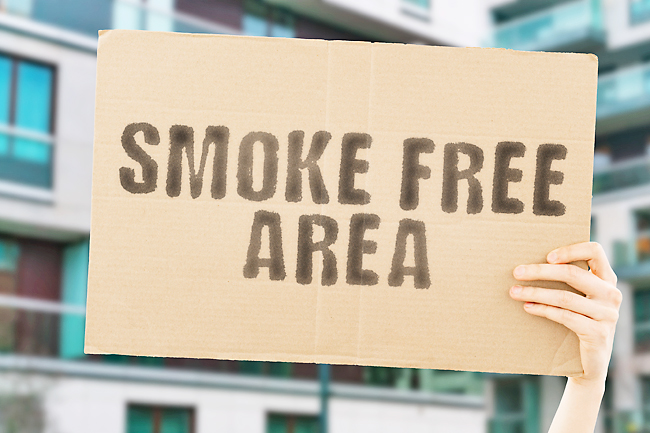Azlan Othman
Brunei Darussalam maintained its top rank last year in the Global Tobacco Interference Index, recording the least tobacco industry interference with a nation score of 15.
The Sultanate tops the world in the overall index front, while in the level of participation in policy-development, New Zealand sits on top.
Published by the Global Centre for Good Governance in Tobacco Control (GGTC), the index measures government efforts to address tobacco industry interference in 80 countries, in 2021.
According to the World Health Organization (WHO), tobacco consumption results in more than seven million deaths due to direct tobacco use, in addition to 1.2 million deaths due to indirect tobacco use (second hand smokers).
Smokers in Brunei Darussalam can seek help in kicking the habit. The government, through the Ministry of Health (MoH), provides smoking cessation clinics at health centres across the Sultanate. These clinics provide counselling services and pharmacotherapy assistance, such as nicotine replacement devices, for those in need.

For those who successfully kick the habit, improvements to their health will be seen and felt, along with the eventual reduction in the risk for lung disease.
According to studies, within three months after quitting, lung infections will gradually clear up. Coughs and shortness of breath will decrease after nine months.
After 10 years, lung cancer risk will be reduced by half compared to smokers; and the risk of cancer of mouth, throat, oesophagus, urinary bladder, cervix and pancreas will also be reduced.
The global tobacco industry interference index is based off of seven indicators, which include level of participation in policy-development and tobacco related corporate social responsibility (CSR) activities, alongside benefits to the tobacco industry, among others.
The global index report states that efforts to strengthen tobacco control in Brunei Darussalam started as early as the 1970s. These were further strengthened by the ratification of the WHO Framework Convention on Tobacco Control (FCTC) in June 2004, and the enactment of the Tobacco Order (TO) 2005, which came into force in 2008. Since then, Brunei has continued to implement and enforce tobacco control measures under the WHO FCTC and TO 2005.
Currently, there are no tobacco companies operating in the country, and since May 2014, no distributors have applied for the licence or renewal of licence.
The report added that, while there is no tobacco industry operating in the Sultanate, tobacco industry representatives had in the past attempted to contact the government on policy issues. Hence, Brunei has taken steps to implement Article 5.3 to protect public health policies from commercial vested interest.
Brunei made headway in implementing Article 5.3 in 2019, and improved its score in the Tobacco Industry Interference Index developed by the Southeast Asia Tobacco Control Alliance.
On industry participation in policy development, the report said the government does not accept, support or endorse any offer for assistance by or in collaboration with the tobacco industry in setting or implementing public health policies in relation to tobacco control. The government does not allow any tobacco industry representative in its delegation to the Conference of the Parties (COP) or its related meetings.
On industry CSR activities, the government is not allowed to form partnerships with or receive contributions from the tobacco industry, including CSR-related activities or contributions.
The government does not give privileges, incentives, exemptions or benefits to the tobacco industry, nor allow any extension in the implementation of policy and legislation.
Government officials do not meet with/foster relations with tobacco companies or attend any social functions and other events sponsored or organised by tobacco companies.
The report also stated that any interactions with the tobacco industry, in cases where such interactions are strictly necessary for regulation, must be conducted in a transparent manner to avoid any negative impressions and conflict of interest. No such interactions were held in 2020.
The report also said no retired senior government official forms any part of the tobacco industry, nor any current officials hold any positions with a tobacco company.
A code of conduct (circular) was endorsed and circulated to all civil servants in November 2019. Any interactions with the tobacco industry and its representatives must be conducted in a transparent manner. The code disallows the acceptance of all forms of contributions/gifts from the tobacco industry including offers of assistance.


